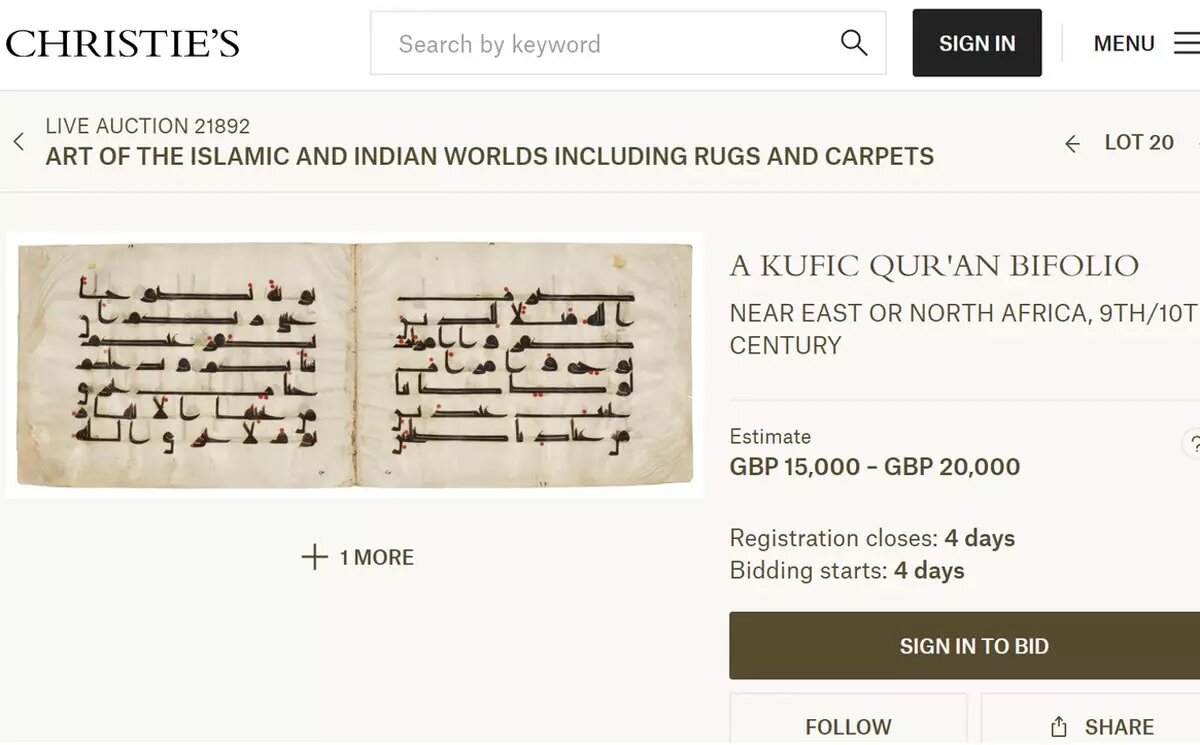Christie’s halts sale of Quran bifolio allegedly stolen from Iran museum

TEHRAN – Christie’s has canceled the sale of a Quran bifolio after some cultural heritage activists claimed it had been stolen from an Iranian museum.
The ancient bifolio is no longer available to potential buyers following an outcry from some cultural enthusiasts saying it belonged to a Quran stolen by armed men from the Pars Museum in Shiraz, southern Iran.
The London-based auction house has hauled the auction to carefully investigate the claim, according to sources familiar with the matter.
The bifolio is believed to be plucked from a Kufic script Quran, which was stolen from the museum about 20 years ago, and for many years, parts of the manuscript were sold in large auctions around the world at amazing prices.
The bifolilo was supposed to go on sale days ago with a pre-sale estimate of £15,000 to £20,000.
Kufic script
In calligraphy, the Kufic (aka Kufi) script marks the earliest extant Islamic style of handwritten alphabet that was used by early Muslims to record the holy Quran.
This angular, slow-moving, dignified script was called Kufic because it was thought to have been developed at Kufah in Iraq—an early Islamic center of culture. Simple Kufi was developed early in the Islamic era; the earliest surviving copies of the holy Quran—from the 8th to the 10th century—were copied from it. Later a floral Kufi script flourished, and several other varieties of calligraphy developed, including foliated Kufi, plaited or interlaced Kufi, bordered Kufi, and squared Kufi.
Kufi script went out of general use about the 12th century, although it continued to be used as a decorative element to contrast with other scripts that superseded it.
AFM
